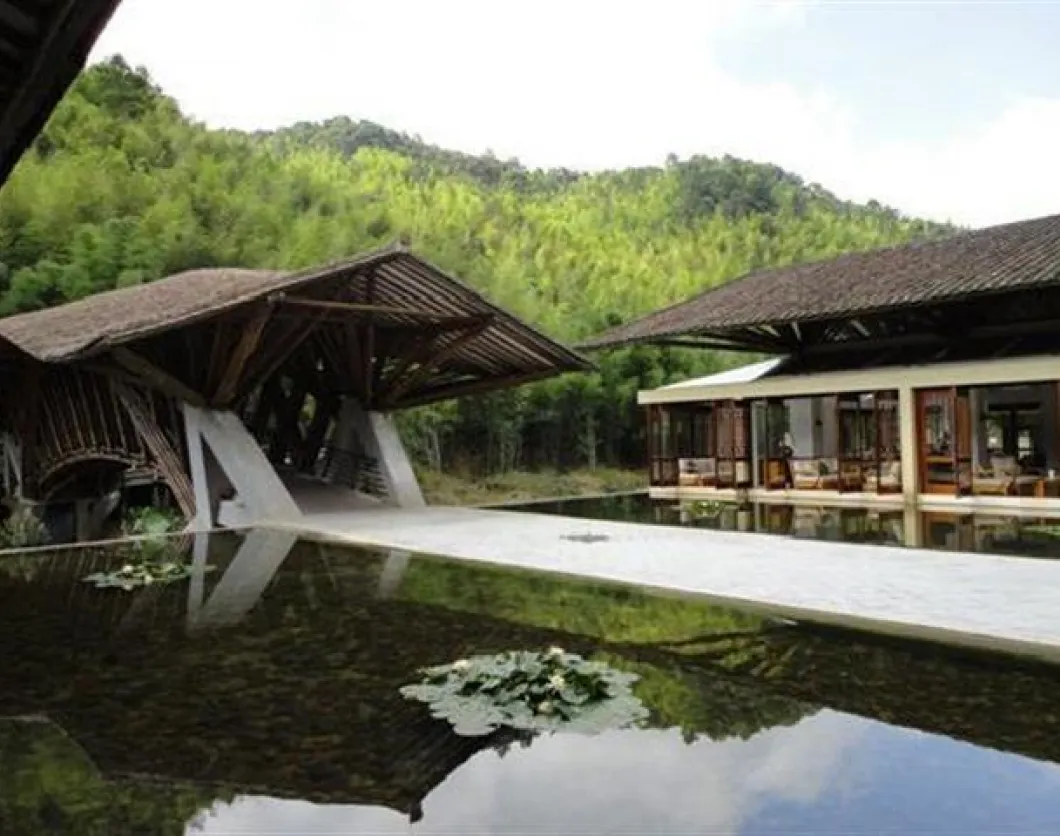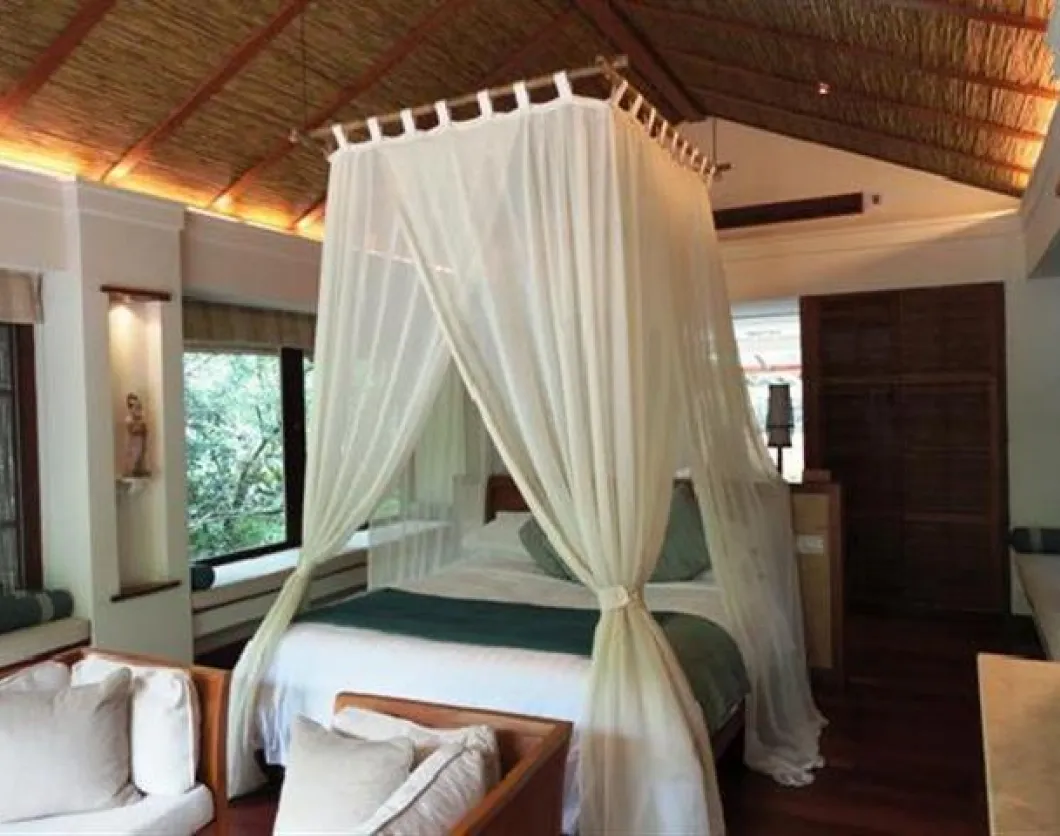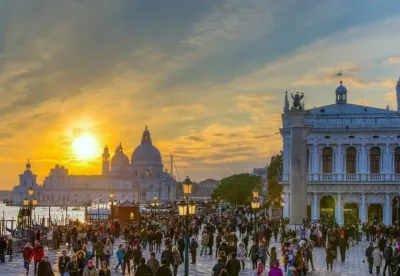It all started with meetings between a Chinese development entity and the people of Keija village. The collaboration between the villagers around Nankun Mountain Nature Reserve and the developers eventually resulted into an eco-tourism mission that brought together experts from various fields. This included professionals from the world of bamboo architecture and people with the best of skills in feng shui building techniques.
Designed by a Fort Lauderdale firm known as EDSA, the eco-lodge opened its doors to the world in 2007 and it’s today hailed as the first amongst equals within the realms of global eco-tourism. Environmentalists and eco-tourists all over the world are happy with the sustainable eco-tourism concept that’s enshrined within Crosswater’s eco-architectural blueprint.
The lodge and spa stands on a 100-square mile natural reserve where River Gankengmei and River Sumaoping merge. Its plush green bamboo forest surrounding is evidently the inspiration behind the lodge’s design since you step into the establishment’s lobby via a bamboo bridge which blends well with the bamboo villas and the rammed-earth. The villas rest on raised podiums close to the water edges.
Crosswaters’ surroundings are as well not devoid of fun eco-friendly activities. This means that you can spend your entire holiday at the lodge exploring its exotic gardens with a vivid display of organic rice and vegetable farming. The fruit trees team up with the bamboo sculptures, endemic plants and an exquisite lotus pond to attract 176 species of local butterflies.
At the two rivers’ convergence point, an observation tower sits above grey-headed woodpeckers’ dwellings. It’s also possible to command a view of orange-bellied leafbirds which are amongst over 72 bird species that make up the forest’s rich bird-life. The establishment also has a stargazing tower at the highest point of its terrain. The tower affords visitors a panoramic view of the entire lodge with a picturesque fallback of mountains in a distance. From this point, the clear night sky makes it difficult to believe that the buzzing city of Hong Kong is just two and a half hours away.
Crosswaters is home to intriguing delicacies. It’s the place to be if you want to try out edible exotic Chinese herbs, river conch, honey and coca tea. Several other ingredients are served in the restaurants which vary in design. Some are built with a touch of Western architectural mindset while others take after the Chinese Haaka eating joints. From the dining area, visitors can move to the spa and enjoy nectar mask and other thrilling and rejuvenating treatments.
The natural set up, the delicacies reflected on the menus and the gardens weave together an eco-tourism philosophy that puts the lodge at parlance with the world’s greatest green lodges. Crosswaters’s design is founded on a slate of international guidelines that are inclusive of cultural treats, hospitality and conservation agendas that call for community service.
Its beautiful roofs are for instance made of reinstated tiles obtained from village ruins. The boardwalks were on the other hand made using forgotten railway ties while most of the architectural design reflects the local Hakaka’s cultural values. Basically, the establishment is joined with nature at the hip. As you therefore absorb the sights and sounds of Dongguan sited at any of the bamboo-shaded decks, drifting away into a world of natural aesthetics is as easy as downhill flow of water.












